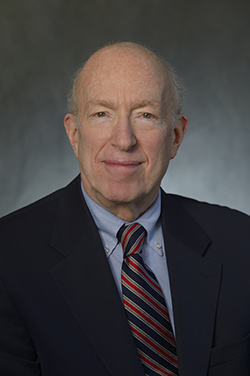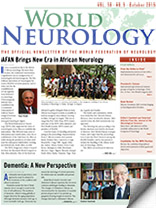By Donald H. Silberberg

Donald H. Silberberg
The neurologic community should congratulate itself for achieving public recognition for our field by organizing public programs. This advocacy method began with the U.S. declaration of the Decade of the Brain in the 1990s. Many other countries followed with their declarations of a year or a decade for the same purpose. In 2013, the World Federation of Neurology designated July 22, the date of its founding in 1957, as World Brain Day. Neurological societies in several countries organized celebrations on that date in 2014, as reported in past issues of World Neurology. The purposes for these celebrations include increasing public awareness of neurological disorders and persuading governments to increase the resources needed to make care available, improve care and carry out essential research.
The huge question is how to move from advocacy to improving prevention and effective clinical care in all countries. As I described in the June 2014 issue of World Neurology, the Fogarty International Center at the National Institutes of Health (U.S.) is trying to help with this by developing a program to promote implementation science. This refers to the study of methods to promote the integration of research findings and evidence into health care policy and practice. The ways to achieve progress include calling attention to the impact of existing data (e.g., global burden of disease studies), designing new research studies that will be understandable and appeal to policymakers and exploring how the conversation with a policymaker or funding agency should be framed.
The Fogarty Center’s approach to implementation science is to learn what has worked, develop communication among neurologists and neuroscientists wherever there is interest and ultimately, perhaps, offer research funding designated for implementation science. This important initiative, as applied to our field, will be among the topics discussed in “Public Policy and Health Economics” at the 2015 World Congress of Neurology in Santiago, Chile, Oct. 31-Nov. 5. Please use this opportunity to share your thoughts about how to move from information to action.
